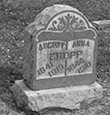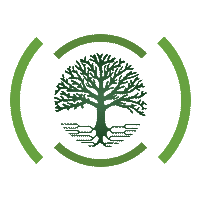AGS: Branching Out is the fourth course in the four-part AGS series of genealogy courses. It is self-paced, online, and in the cloud. The lesson modules in Branching Out pick up where Beyond the Basics leaves off. The course continues to teach methods of family history investigation by broadening your use of a wide variety of genealogical sources. As you work through this course, you will improve your genealogical skills using records relating to funeral homes and cemeteries, religious records, newspapers, and courthouses. You will learn to write a genealogical report that will help develop your skills in collecting, analyzing, and evaluating information.
 AGS: Branching Out will teach students how to determine the value of information when examining a broad range of records. They will understand the meaning and importance of various affidavits and documents contained within a probate file. They will learn to find diverse types of records and materials that support family history research in and out of research repositories. And they will use and evaluate the information from various genealogical records to create a cohesive report of their findings and the value of those findings.
AGS: Branching Out will teach students how to determine the value of information when examining a broad range of records. They will understand the meaning and importance of various affidavits and documents contained within a probate file. They will learn to find diverse types of records and materials that support family history research in and out of research repositories. And they will use and evaluate the information from various genealogical records to create a cohesive report of their findings and the value of those findings.
Each module contains extensive subject matter, examples, a self-correcting quiz, a glossary, a topic reference list, and written assignments that will be graded by a professional genealogist. A full syllabus is provided to course registrants. The course modules are as follows.
Since the American Genealogical Studies: Branching Out is a cloud-based course, you need either a computer or tablet with an internet connection to access the lessons, examples, exercises, and quizzes. No software or material is loaded onto your computer or tablet.
To optimize your online learning experience, see more about the Canvas system https://guides.instructure.com/m/67952/l/720329-which-browsers-does-canvas-support.
NGS grants a license to an individual to take the course shown above. This grants the individual a personal, nonexclusive, nontransferable right to the course materials for that student’s personal educational use only. All students work independently.
The American Genealogical Studies series courses have no set time or date for weekly attendance. These online courses are geared toward individuals who have varied schedules that may include their work, volunteer pursuits, and or family obligations. You prioritize your time management and your learning, so your course work can be scheduled at your own pace.
The Branching Out course requires a time commitment to take the course, do the research, and complete the writing assignments. This time commitment varies, depending on the student.
A student has access to Branching Out for twelve months from the date of registration. For those who need extra time, a one-time extension of six months is granted by contacting the NGS Course Administrator prior to the course expiration date.
The courses within the American Genealogical Studies series are cloud-based, interactive courses. The Basics provides a solid foundation in genealogy. Guide to Documentation and Source Citation helps genealogists understand the principles of citation for common sources. Beyond the Basics teaches a systematic method of investigation using a wide variety of genealogical materials. Branching Out builds on the methods of family history research by broadening your use of genealogical sources.
If you are enrolled in American Genealogical Studies: Branching Out, you will need to submit written reports. You need a word processing program and a PDF (Portable Document Format) converting program. You should have some type of scanning software for documents that you want to submit with your report.
You should know how to use a Microsoft Word document (file types .doc, .docx) with footnotes and how to attach documents.
Each student who successfully completes each course in the American Genealogical Studies series receives a letter of completion. Letters are mailed out once per month. If you complete the course by the 20th of the month, we mail your letter out at the end of that month. If you complete all four courses in the AGS series you will receive a NGS Certificate in American Genealogical Studies after your final, fourth letter of completion.
Here is a link to the American Genealogical Studies: FAQs. If you have further questions, please contact the NGS Course Administrator.
1 Elizabeth Shown Mills, Evidence Explained: Citing History Sources from Artifacts to Cyberspace, rev.ed. (Baltimore: Genealogical Publishing Company, 2012) and QuickSheet: Citing Ancestry.com Databases and Images, rev.ed. (Baltimore: Genealogical Publishing Company, 2012).

 AGS: Branching Out will teach students how to determine the value of information when examining a broad range of records. They will understand the meaning and importance of various affidavits and documents contained within a probate file. They will learn to find diverse types of records and materials that support family history research in and out of research repositories. And they will use and evaluate the information from various genealogical records to create a cohesive report of their findings and the value of those findings.
AGS: Branching Out will teach students how to determine the value of information when examining a broad range of records. They will understand the meaning and importance of various affidavits and documents contained within a probate file. They will learn to find diverse types of records and materials that support family history research in and out of research repositories. And they will use and evaluate the information from various genealogical records to create a cohesive report of their findings and the value of those findings.